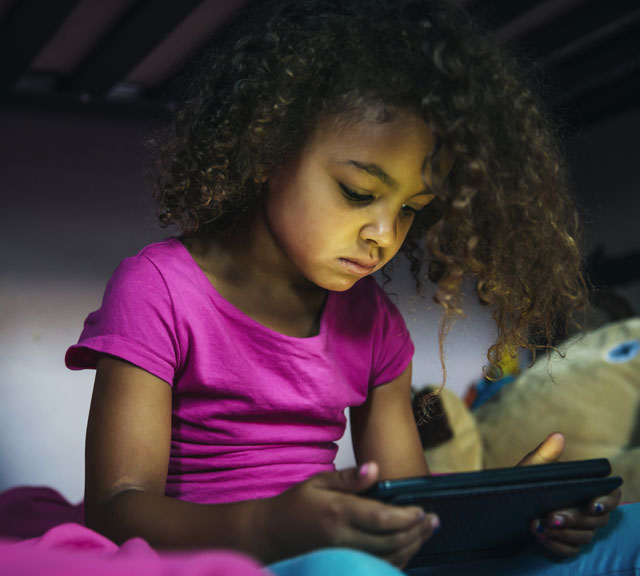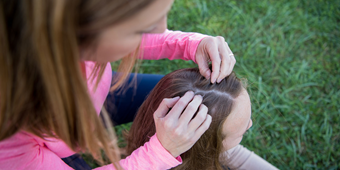Supporting Your Child in the Battle Against Bullying

Find Your Perfect Match
Answer a few questions and we'll provide you with a list of primary care providers that best fit your needs.
You may not be surprised to learn that as many as 35 percent of young people age 10 to 18 are bullied face to face, and another 15 to 20 percent are cyber bullied. Is your child one of them?
With the growing influence of social media, it’s more important than ever for parents to support and guide their children in the battle against bullying.
Samaritan Behavioral Health Director Melissa Jones, MRC, LPCC-SC, LICDC-CS, says social media expands and intensifies the possibilities for bullying. “Before, it happened in the school yard. Now, it’s non-stop. Eighty percent of teens are using cell phones and around 70 percent of those say they’ve seen cyber bullying. It can look like name calling or something not so overt.”
"Kids bully because they have no control in their own world. It is a way for them to regain power."
For example, she says, “A group of girls may post a photo of themselves at a sleepover and tag a girl who wasn’t invited, simply to emphasize exclusion.”
Bullies are made, not born, Jones says. It is a learned behavior either at home or in society. “Bullying often is the child’s response to stress, inconsistent discipline, abuse or being bullied by their own parents. Kids bully because they have no control in their own world. It is a way for them to regain power. Bullying can happen within the sibling relationship, or if that child perceives another child as weak or a threat.”
Jones adds that children’s exposure to violence through gaming, television or home environment lessens the ability to empathize with the person being hurt.
“Most parents underestimate the impact of gaming and social media,” she states. “Aggression in children is subtle but cumulative with constant exposure.” Because the violence is so pervasive, she limits how much her own sons — who are in elementary and middle schools — are exposed to technology.
To counteract the effects of bullying, Jones offers parents the following suggestions:

- Communicate with your child early and often. Begin dialoging when your children are young to establish yourself as a trusted resource. Engage in discussion about their school day. Ask how they feel about a movie or a neighborhood event. Converse but don’t interrogate. “The ability to have difficult conversations later on is built on this established, ongoing communication,” Jones says. “If you haven’t already started communicating routinely with your child, start now. It’s never too late.”
- Maintain eye contact while talking. “When children have to look someone in the eye, they have to hold their heads up, and that gives a show of confidence,” Jones says. “That eye-to-eye contact can mitigate bullying. I also teach my kids to practice ‘what if?’ scenarios. That role playing may give them a practice scenario to refer back to when confronted by a bully.”
- Teach your children empathy. Demonstrate your own compassion and empathy. “A loving parent can override a lot of the negativity children face,” Jones says. Show your children how to resolve conflicts effectively by the way you resolve conflicts.
- Encourage your child to ask for help. Let your child know that fighting back either physically or electronically isn’t the best way to handle being bullied. Young people should seek help from an adult they trust, even if it’s not their parent.
- Monitor phone and electronic use early on. “Be involved from the start,” Jones counsels. “You can place apps on your teen’s phone that will feed directly to your phone. It’s best to monitor them in some way to decrease their exposure to violence or other inappropriate material. If your child violates your rules for use, don’t be afraid to take the phone away. It may be a welcome break for your child. However, if you see dramatic shifts in behavior when the technology is taken away, this is a red flag that the amount of technology used by your teen needs to be reconsidered.”
- Limit screen time. The average child spends seven to eight hours a day looking at a screen. Jones highly values activities that use another part of the brain, such as joining a school club, playing sports or playing in a band. Interaction with other kids and talking face to face promotes healthy social development and helps counteract the self-doubt a bully creates.
Find Your Perfect Match
Answer a few questions and we'll provide you with a list of primary care providers that best fit your needs.
Source: Melissa Jones, MRC, LPCC-SC, LICDC-CS, Director, Samaritan Behavioral Health Inc. — Integrated Care Solutions





